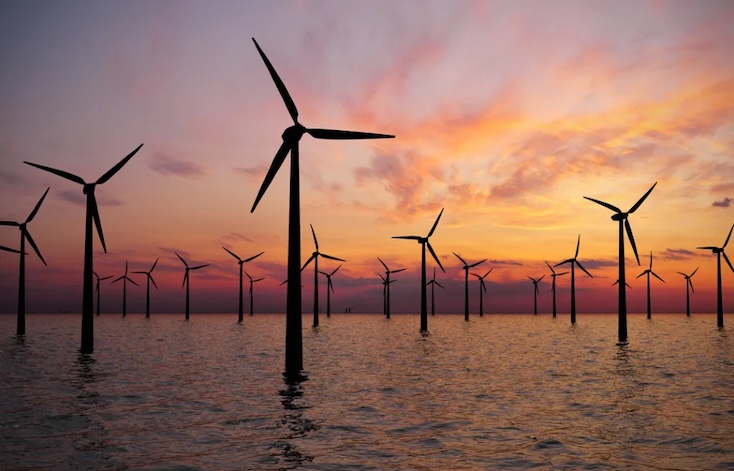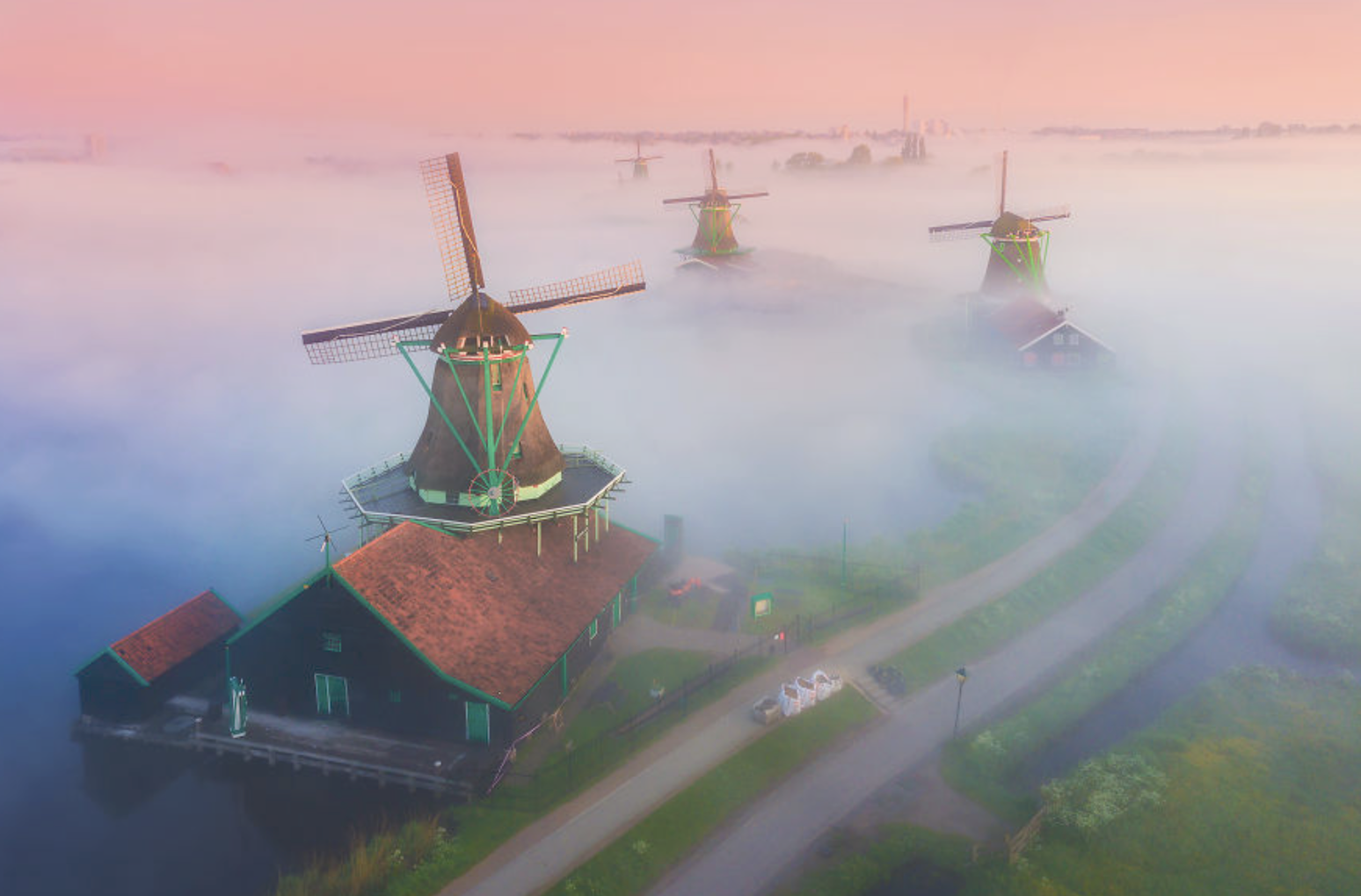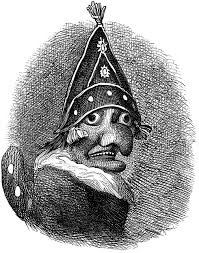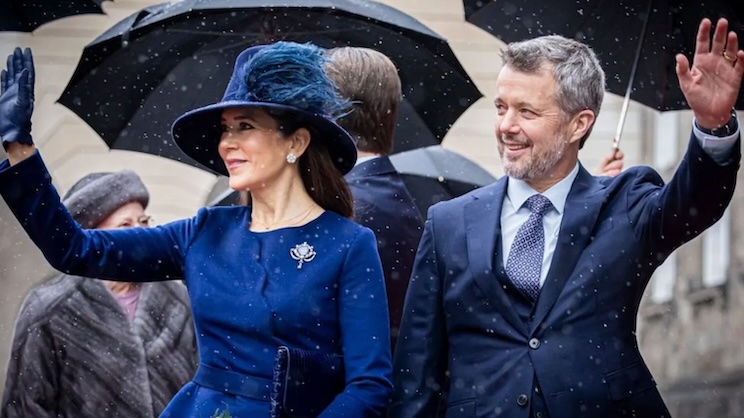Sunday Morning / February 4, 2024
Shortly after 55-year-old King Frederik X ascended Denmark’s throne last month, he released a surprise 110-page manifesto, “Kongeord” (The King’s Word). It outsold 2023’s bestseller within an hour.
It addresses the Danish commonwealth and proffers a statement of work. "My hope is to become a unifying king of tomorrow. It is a task I have approached all my life," Frederik writes, using a controlling idea to illustrate a central theme. Reconsidering the role of patriarchy in modern society, a nod to the newly crowned Queen Mary, he uses his platform to call attention to renewable energy. Compared to 1990 levels, Denmark's Climate Act intends to reduce their greenhouse gas emissions 70% in 2030; and to be entirely 100% renewable and reach climate neutrality by 2050.
The 2023 United Nations Climate Conference has denounced fossil fuels for the first time. All 198 countries at the COP28 pledged a collective 85 billion in theory to begin curbing cash flows and moving away from carbon energy sources "in a just, orderly and equitable manner to mitigate the effects of climate change and reach net zero by 2050." In practice, it'll come down to everyday people.
With an MSc degree in political science from the University of Aarhus, Prince Frederik spent his senior year at Harvard University in a rent controlled apartment. He is the first Danish Royal in 900 years to complete a master’s degree, thereafter serving in a diplomatic role as the First Secretary to the Danish Embassy in Paris. He’s served Denmark’s three military forces — The Royal Danish Army, Navy and Air Force — with stints in The Royal Life Guard; Guard Hussar Regiment; and Danish Frogmen Corps.
He participates in expeditions, forums and events on climate, and promotes sustainable Danish energy worldwide. He co-authored “The Kongelig Polartokt” (Polar Cruise Royal) with Kofi Annan; and writes High School textbooks, including, “Naturen og klimaændringerne i Nordøstgrønland” (Nature and Climate Change in Northeast Greenland).
Finally, he promotes scientific research projects through his foundation, Kronprins Frederiks Fond, and in the spirit of his predecessor, Her Majesty Queen Margrethe II, has signaled that among the highest global priorities of our time is the climate crisis.
New World Order
Many countries have tried to subsidize green technology and failed. The Kingdom of Denmark is an exception. Concerned about dependency on foreign oil, and high carbon dioxide emissions per capita, Denmark reacted swiftly to the global Oil Crisis in 1973 by pioneering the development of commercial wind power. Today, Danish manufacturers like Vestas — the world's largest wind-turbine manufacturer — produce over 50% of Denmark’s electricity. In fact, the Kingdom of Denmark holds the distinction of having the ‘Best Energy Security in the World,’ according to the World Energy Council.
Savvy enough to provide 30% of the initial capital right up front, Denmark effectively created a culture of clean energy by incentivizing their private sector, and inspiring their consumer, to partner with a rather common-sense initiative in parliament.
The core relationship between a country’s natural resources > energy consumption > national security is critical to that nation’s sovereignty, and with Russia, Iran and Qatar in command of more than half of the world's natural gas reserves, U.S. concerns about dependency on the world’s top energy suppliers seems to be listening to the Danish case.
Christiansborg Palace
“Kig på de flammende stafetvirvler,” a young passenger squeals, aboard the SAS non-stop service from Dulles. “Look at the flaming baton twirlers!” Twenty, 45-foot-high wind turbines rise out of the sea just 3.5 kilometers off Copenhagen’s shoreline.
Middelgrunden, the world’s first and largest offshore wind farm, delivers 4% of the power to Copenhagen, and is one of many examples of Community Wind Energy; where 50% of the cooperative is owned by community investors, and 50% is owned by the municipal utility company. It’s 1 of 16 offshore wind farms in Danish waters responsible for generating 50% of the electricity to Denmark’s 5.8 million residents. The Danish Energy Agreement of 2011 put Denmark on path to be fossil fuel free by 2050.

Middelgrunden
The Copenhagen Metro wiggles through 39 stations, 25 of which are underground, and carried 107 million passengers in 2023. The first driverless metro in the world appropriately serves Christiansborg Palace, the modern seat of the Danish Parliament, where we stepped off and spoke with Martin Lidegaard; Denmark’s Cabinet Minister of Climate and Energy.
The Oil Crisis (1973) and subsequent stock market crash (1974) had the most significant impact on the US economy since the Great Depression. Gas stations were closed on weekends, and gas shortages caused mayhem across the nation.
“Our response here was Car-free Sundays,” Lidegaard says. “Car-free Sundays are fond memories from childhood.”
Cycling is integrated into the local, regional and national train services in Denmark and facilitates a hybrid form of commuting. Do you commute to Christiansborg on a bicycle?
“I have and often do, yes.”
How did you pass the Danish Energy Agreement through an ever-changing legislature?
“It’s a good question,” says Lidegaard, referring to Denmark’s Energy Strategy to be independent of fossil fuels by 2050. “I still don’t really believe it.
Two reasons. First, is our recent history. The first 50 years of the modern wind turbine proved very economically successful. Second, is our long-term history. The Danish Realm is comprised of the Jutland peninsula, 400 islands in the North Sea, and Greenland which were all consolidated in 1397 under the Crown of Denmark.
I've just finished The Vikings. Far from being just wild, barbaric, axe-wielding pirates, the Vikings created complex social institutions, oversaw the coming of Christianity to Scandinavia and had a major impact on European history through trade, travel and infrastructure."
How do your taxes 'incentivize' your infrastructure? We hear that automobile tax is upwards of 100%?
“Danish vehicle taxes are high as hell, and complex deductions serve to incentivize efficiency, curb emissions, and vehicles on the road.
Opposed to Inter-Fund borrowing, Denmark's wealth comes exclusively from income, automobile and electricity taxes which in turn pay for hospitals > private schools > universities > infrastructure which are entirely free! Furthermore, we provide tax relief for those who work with rather than against the system. Ultimately, we're all held accountable for the lives we lead.”
The Danish philosopher Soren Kierkegaard said, “Political thinking must be based upon a tangible reality” and certainly your turbines could have been concealed from view. Does their physical prominence promote cultural identity, a modern Danish cross?

There are 6K plus windmills / turbines in Denmark in 2022.
“Yes. They’re a symbol of our prosperity. However, no symbol should replace common sense. This is what has and continues to unite us. The industry, unions, green organization and citizens are united by a standard of practicality.”
Denmark lost its southern territories to Germany in 1864. Yet when the Bundestag approved their energy transition, they called upon Denmark for clues on how to re-structure their energy sector. Is loss the precursor to cooperation?
Laughing. “Perhaps. Your research is tight and your right. Viking technology — Longships, 24-hour sailing practices, highly skilled navigators — enabled Viking Colonization across modern-day Russia, Ukraine, Africa, Turkey and Iran. However, since the Norse Invasions, Scandinavia has steadily lost her geography. Today, Denmark is the 38th largest economy in the world by GDP. Yet the UK, China, even the United States are all soliciting the Danish case.”
Resistance to wind farms in Germany is so great that they must be built beyond the horizon line. When you speak to China, India and the US about re-creating their energy sectors do you advise coercion, (automobile taxes, gas prices), incentives (tax breaks for participating in energy cooperatives) or both?
“Ownership is by far is the greatest incentive, and investment in a wind cooperative makes fiscal sense. Pay into a cooperative for the first 10 years, which pays for the cost of the turbine, and the electricity is thereafter completely free. It’s a fantastic story! Denmark’s clean energy isn’t driven by altruism, per se, it’s just common sense.”
Ronald Reagan argued deficit reduction this way. “Entrepreneurs and small enterprises are responsible for the economic growth of the United States.” Is this true in Denmark?
“This statement is true, but perhaps not the whole truth. A nation’s citizens generally partner with their government for capital, collaborate with their industry’s leaders and experts, and grow a product or service around a shared vision that’s consistent with the national identity.
Fossil fuels — coal, oil, crude, natural gas — those costs and upkeep are eternal. However, once you buy, build and pay for a wind turbine you have free electricity for life.”
Will Denmark, in a final analysis, reform or revolutionize the world’s energy sector?
“Had Martin Luther King's iconic 'I Have a Dream' speech at the March on Washington for Jobs and Freedom in 1963 began 'I Have a Nightmare,' could or would that kind of rhetoric have ignited the Civil Rights Movement?
The Environmental Movement, as such, exploits this paradox. It’s a battle between civil and economic rights both fought on a moral battlefront. The effects of fossil fuels, carbon emissions, and pollution are scientific facts, but our shared existence here on earth cannot be addressed by a single constitution.
We're a dynamic spectacle of technology. Our collective experience — Danish Vikings > Danish Realm > Unitary Sovereign State — confirms that energy equates to political power, albeit temporarily.”
“Control oil, control nations,” Henry Kissinger once said.
Laughing. "Control food, control people? Wasn't this his phrase? Ultimately, food and energy independence will invalidate these theories.”
For a New World Order?
"Rachel Carson's 1962 publication Silent Spring brought the environmental movement into focus by the describing the impact of chemical pesticides on biodiversity. It resonated in Nordic regions, whose wealth has and continues to rely on the waters, minerals, and marine life of Scandinavia. Even in the vast and mysterious reaches of the sea, we're brought back to the fundamental truth that nothing lives to itself."








